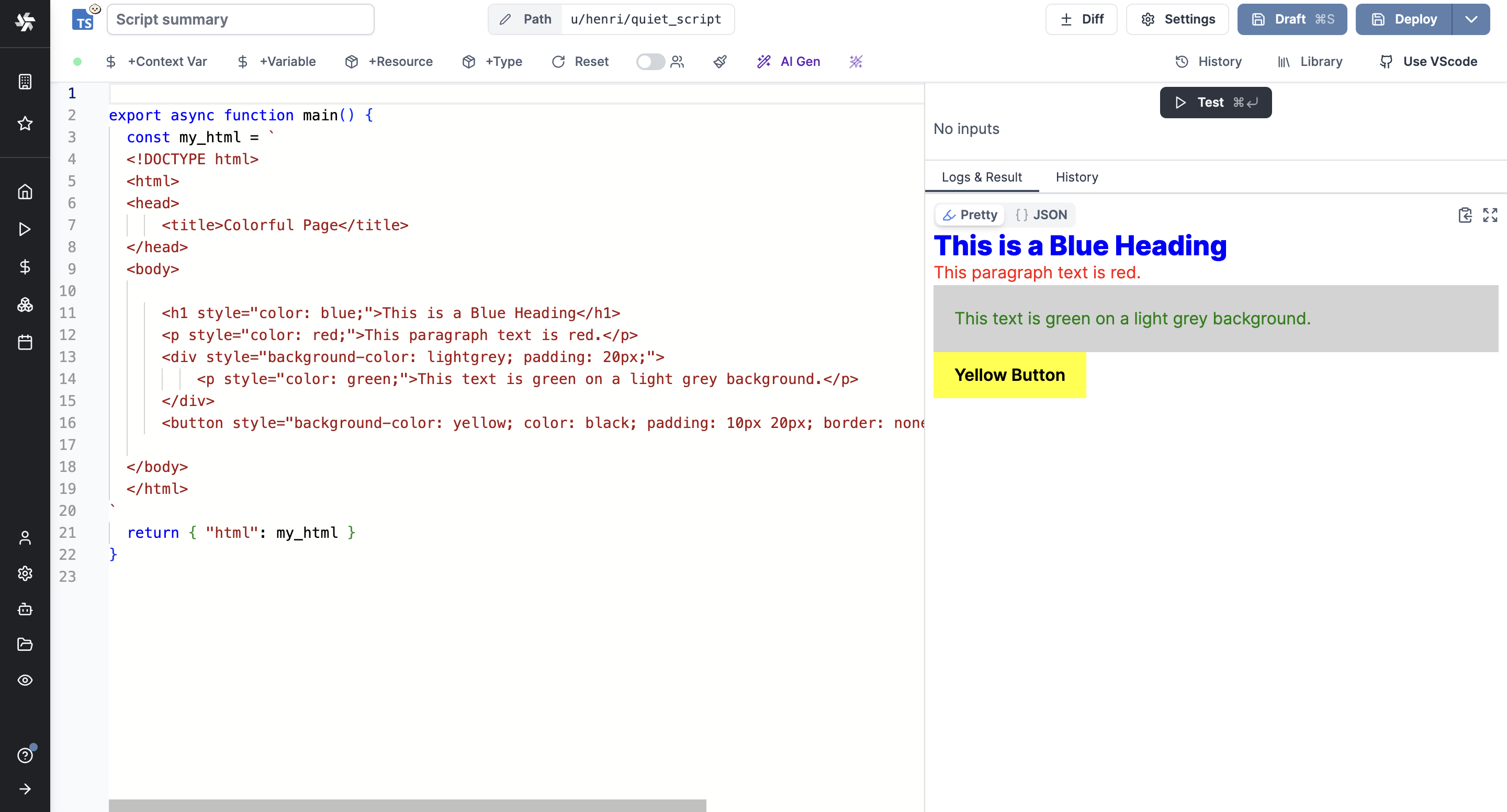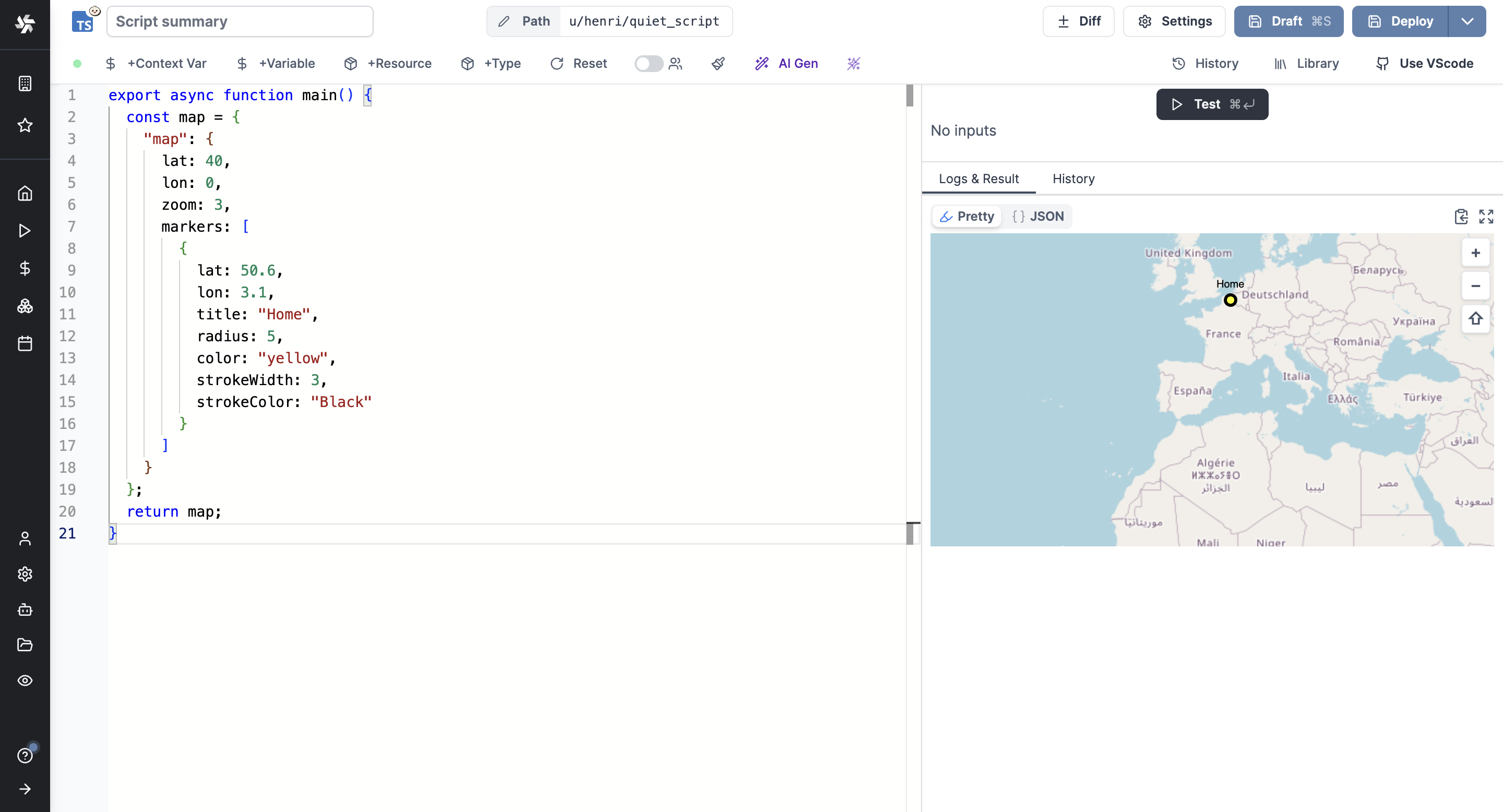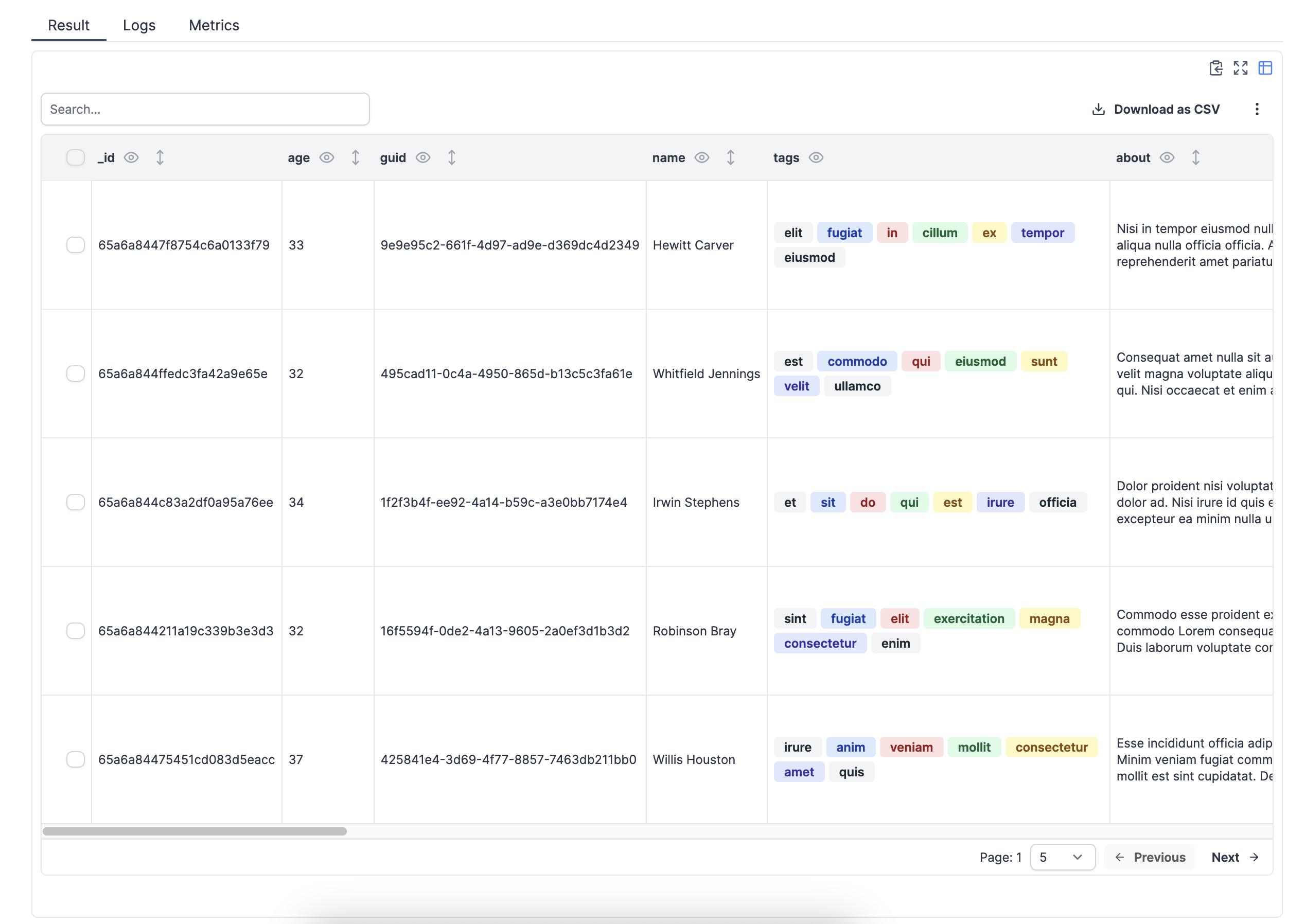Rich Display Rendering
The result renderer in Windmill supports rich display rendering, allowing you to customize the display format of your results. By leveraging specific formats, you can display images, files, tables, HTML, JSON, and more.
Rich display formats
This feature is useful if you want to display an image, a GIF, a file, or specify the filename for a rich result.
If the result is an object/dict with a single key (except for approval, which needs 3), you can leverage the following rich results:
| Type | Description | Example |
|---|---|---|
| json | Render the value as a JSON | return { "json": { "a": 1 } } |
| table-col | Render the value as a column-wise table | return { "table-col": { "foo": [42, 8], "bar": [38, 12] } } |
| table-row | Render the value as a row-wise table | return { "table-row": [ [ "foo", "bar" ], [ 42, 38 ], [ 8, 12 ] ] } |
| table-row-object | Render the value as a row-wise table but where each row is an object (optionally the first row can be an array of strings to enforce column order) | return { "table-row-object": [ { "foo": 42, "bar": 38 }, { "foo": 8, "bar": 12 } ] } or return { "table-row-object": [ ["foo", "bar" ], { "foo": 42, "bar": 38 }, { "foo": 8, "bar": 12 } ] } to enforce column order |
| html | Render the value as HTML | return { "html": "<div>...</div>" } |
| png | Render the value as a PNG image | return { "png": { "content": encode(image) } } or return { "png": encode(image) } |
| file | Render an option to download the file | return { "file": { "content": encode(file), "filename": "data.txt" } } |
| jpeg | Render the value as a JPEG image | return { "jpeg": { "content": encode(image) } } or return { "jpeg": encode(image) } |
| gif | Render the value as a GIF image | return { "gif": { "content": encode(image) } } or return { "gif": encode(image) } |
| error | Render the value as an error message | return { "error": { "name": "418", "message": "I'm a teapot" }} |
| approval | Render an approval and buttons to Resume or Cancel the step | return { "resume": "https://example.com", "cancel": "https://example.com", "approvalPage": "https://example.com" } |
| svg | Render the value as an SVG image | return { "svg": "<svg>...</svg>" } |
| markdown | Render the value as Markdown | return { "markdown": "## Hello World" } or return { "md": "## Hello World" } |
| render_all | Render all the results | return { "render_all": [ { "json": { "a": 1 } }, { "table-col": { "foo": [42, 8], "bar": [38, 12] }} ] } |
| map | Render a map with a given location | return { "map": { lat: 40, lon: 0, zoom: 3, markers: [{lat: 50.6, lon: 3.1, title: "Home", radius: 5, color: "yellow", strokeWidth: 3, strokeColor: "Black"}]}} |
Windmill can also render S3 parquet files, see Workspace S3 Integration.
Note for tables: If the result matches the table format (either table-col, table-row, or table-row-object), it will be displayed as a table even if the the data is not nested under the key table-*.


For example:
import { encode } from 'https://deno.land/std@0.82.0/encoding/base64.ts';
export async function main() {
const url = 'https://source.unsplash.com/featured/300x201';
const resp = await fetch(url);
const buff = await resp.arrayBuffer();
const data = encode(buff);
return {
png: {
content: data
}
};
}
Rich table display
The rich table display will be enabled for scripts or flows when:
- The result is an array of objects.
- The result has a 'table-col' key.

Interactions
The rich display renderer also supports interactions. Interactions are a way to display a result and allow the user to interact with it. For example, you can display a table and allow the user to sort it by clicking on the column headers.
The features are:
- Search.
- Hide/show columns.
- Sort by column (ascending/descending): Only enabled if the column is sortable, i.e. if the column is a number or a string.
- Pagination.
- Download as CSV. If the user selected rows, it will download the selected rows as CSV. If no rows are selected, it will download the entire table as CSV.
- Download as JSON.
Example
Try with this Python:
import requests
from typing import Any, Dict
def main() -> Dict[str, Any]:
url = "https://jsonplaceholder.typicode.com/posts"
response = requests.get(url)
data = response.json()
return data